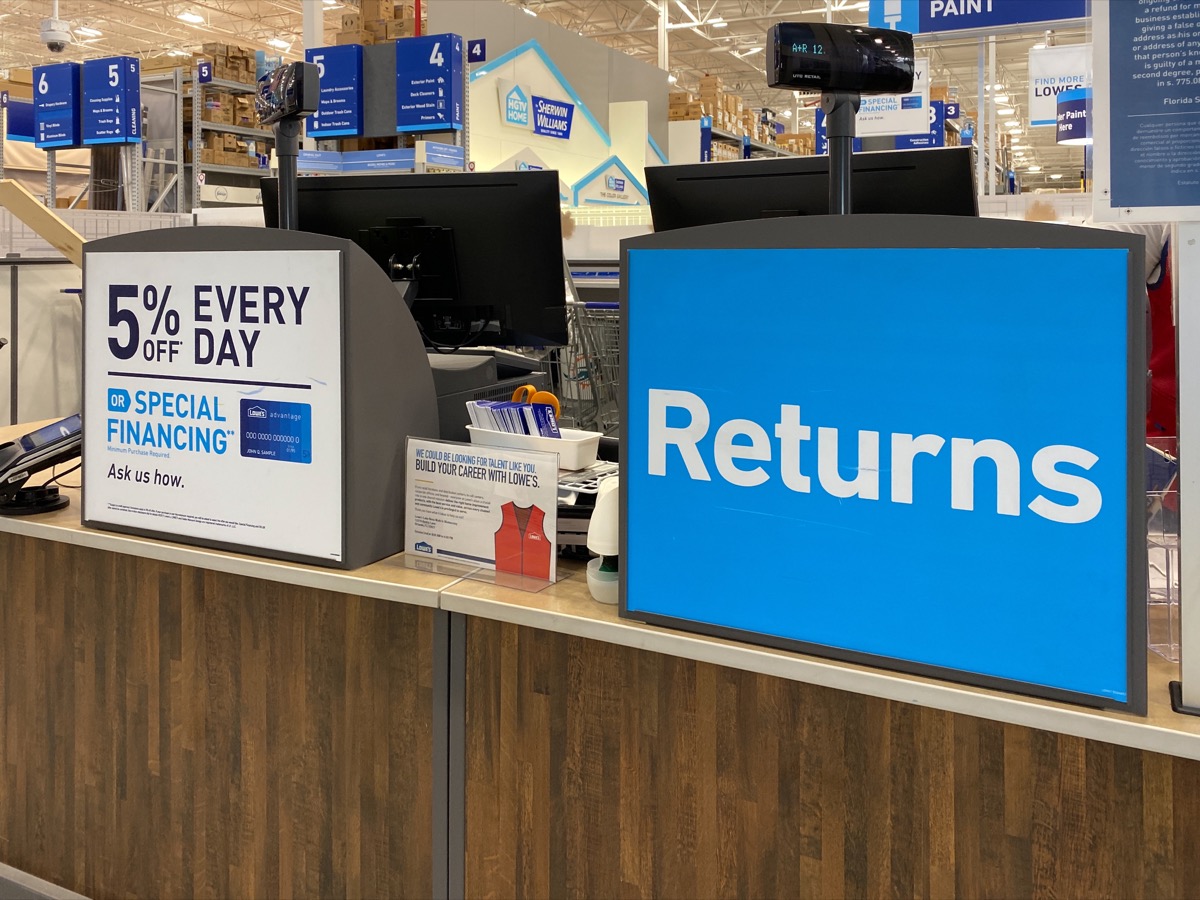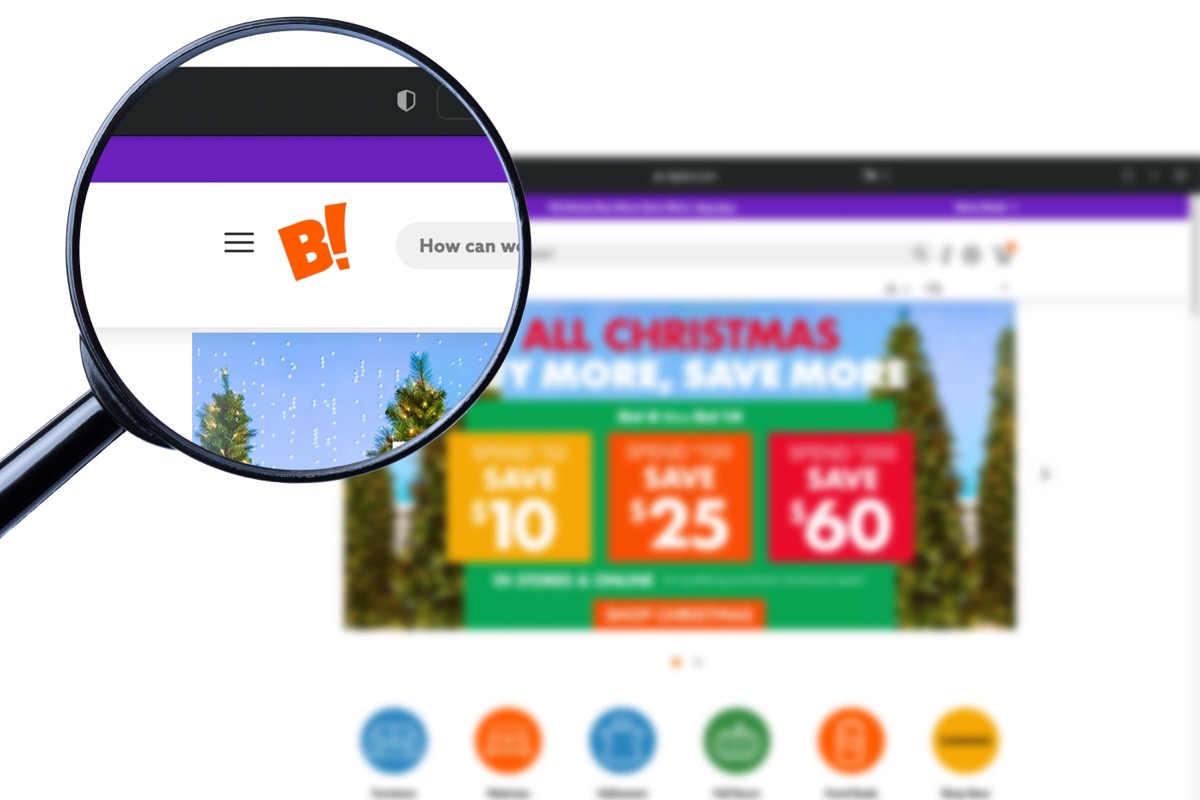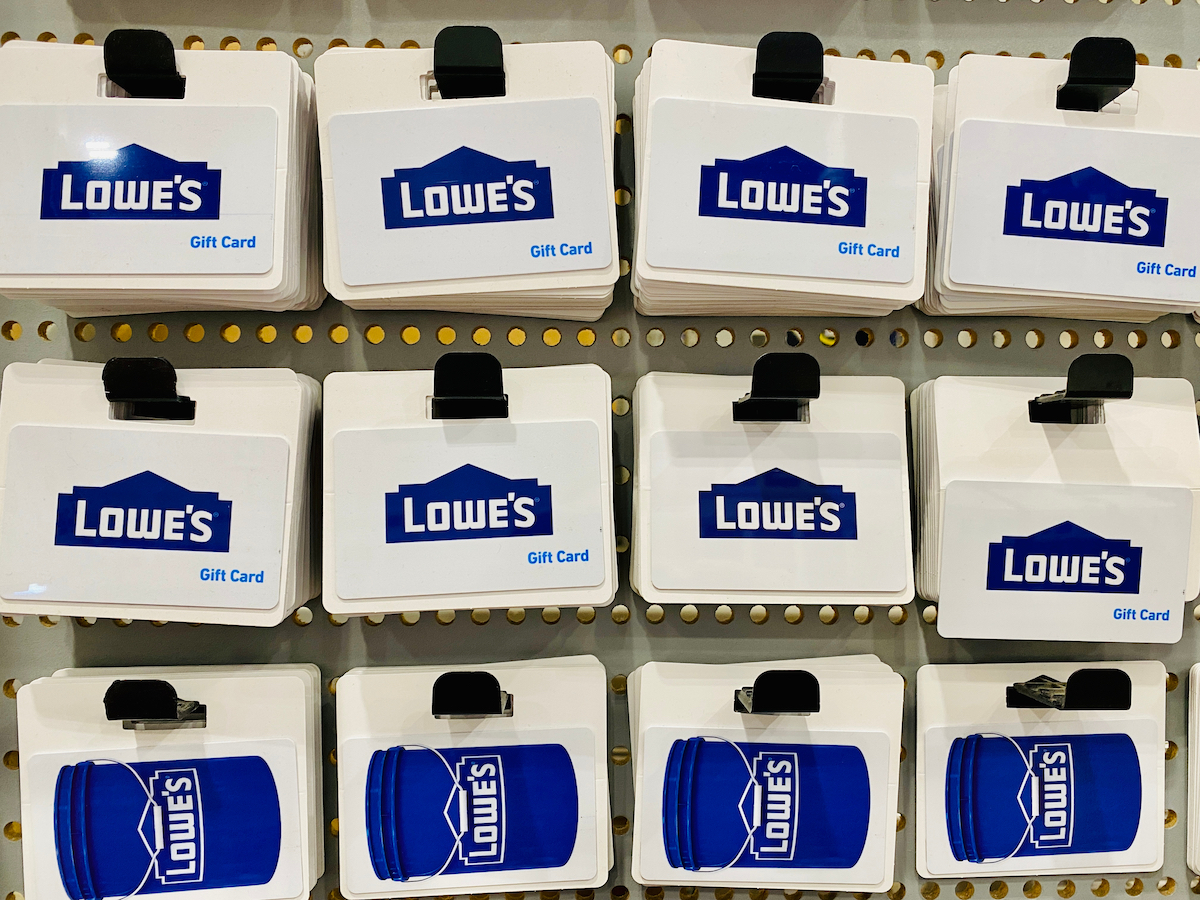7 Ways to Spot Fake Deals and Scams When Online Shopping

With a click of a button, you can have products delivered to your house in no time, and the convenience of shopping online has made it accessible for anyone with a device. According to data from Yaguara, a platform that presents market data for e-commerce businesses, 275 million people in the U.S. (aka more than 81% of the total population) shop online.
But, while online shopping has its perks (from discounts to comparison shopping and fast shipping), you can be targeted with scams and fake deals. In 2021, the global e-commerce fraud detection and prevention market was estimated at $36.7 billion, according to Statista, and it’s expected to increase in the next few years, surpassing the $100 billion mark by 2027.
While that’s an alarming figure, you can protect yourself from online shopping fake deals and scams by following these experts tips.
RELATED: How to Spot a Credit Card Skimmer.
1. Always Check Return Policies

Before buying anything, always read the return and exchange policy. You don’t want to get stuck with something you don’t want or have to pay a hefty fee to return. You’d be surprised how many companies make returning a hassle, which can be a red flag.
“I like to familiarize myself with return policies,” smart shopping expert Trae Bodge with Truetrae.com says. “Can you return something for free, or is there a charge? How long do you have to return something? Sometimes, companies swindle shoppers by making returning impossible.”
2. Don’t Fall for Fake Freebies

Be wary of freebies. If it’s an untrusted site, your personal information might be stolen.
“Scam sites often try to get your personal information or trick you into entering your credit card or other payment data, even for products advertised as free,” says Shelley Hunter, founder of Consumer Guide to Gift Cards.
“You might see an offer for a free printable, free fonts or photos, or a free gift card. But to get the freebie, you must enter your credit card information to prove you’re a person.”
To prevent becoming a victim, Hunter advises researching the site with ScamAdvisor.com or doing a quick search to see if anyone has reported it as a scam.
RELATED: How to Protect Your iPhone From New Hackers.
3. Stay Away from Sponsored Sites to Avoid Gift Card Scams

Gift cards are easy and popular gifts that scammers love. They create fake sites designed to look legit, complete with logos and layouts that have a striking resemblance to the site you think you’re logging onto.
“To increase the number of visitors, scammers bid on specific keywords related to legitimate gift card activation sites, ensuring their fake websites appear at the top of search engine results,” Hunter says.
The scam happens when the card is activated, and you enter the card number and PIN. “Once you input this information on a scam site, the scammers will immediately steal the gift card’s value and use it for their benefit.”
But there is a way to protect yourself from gift card scams:
- Type in the full address manually “without letting the search engine finish it,” Hunter says. “Scammers create sites with similar URLs to trick you, so ensuring you type the exact address can help you avoid these fake sites.”
- Stay away from sponsored websites. “Scammers often pay to have their fake websites outrank the legitimate ones in search results,” Hunter says. “Avoiding sponsored links reduces the risk of landing on a fraudulent site.”
- Always use QR codes or direct links, Hunter says. “Use a QR code or another direct link to the gift card activation page to minimize the risk of mistyping the URL or selecting a fraudulent link.”
- Finally, you can compare URLs carefully to help prevent gift card theft. “Always compare the URL that pops up with the one listed on the back of the plastic gift card. If the URLs do not match exactly, it’s a red flag,” Hunter says.
When in doubt, call the telephone number on the gift card for assistance.
4. Research Unfamiliar Sellers

It can be risky to shop with an unknown company or seller, but Bodge recommends checking them out on Trustpilot or the Better Business Bureau before your purchase. “I also like to read the comments on their social posts, which can be very telling,” she says.
RELATED: 6 Best Coupons and Deals If You’re Over 55.
5. Shop Securely

Look at the payment options before buying anything to ensure there are secure methods.
“I would suggest avoiding paying with your debit card, as it is not as secure as paying by credit card,” Bodge says. “Also, never send cash or wire transfers, and if anyone asks you to buy a gift card and pay with it, run, don’t walk. That’s become a classic scam.”
6. Don’t Pay for Concert Tickets in Cash

Music festival season is here, and many bands are touring this summer. Traveling to see your favorite artist has risen in popularity, according to a recent Bread Financial poll, Bodge says.
“Nearly two in five Gen Z and Millennial travelers have spent between $500 and $5,000+ on tickets alone for destination live events.”
But that can be cause for concern.
“If you are buying concert tickets outside of the traditional platforms, like Ticketmaster, watch out for requests to pay in cash or gift cards, or paying another way that is not secure.”
RELATED: The 20 Best & Worst States to Get Concert Tickets.
7. Text or Email Messages

Oftentimes, brands will send a text or email alerting you to an early sale, but Bodge warns to be careful.
“If the offers are overly generous, read them carefully to look for spelling errors, funky-looking URLs, etc. And if you click on a link and your email server raises a red flag, you should walk away.”
Hunter also advises shoppers to be leery of unexpected messages.
“You might get a text saying your delivery is held up at customs due to an invalid shipping address or that USPS or UPS is trying to deliver a package but needs your correct address,” she says.
“These scams trick you into providing personal information and potentially making a payment.”
Delete the message or hang up, especially if you’re not anticipating a delivery, Hunter says.